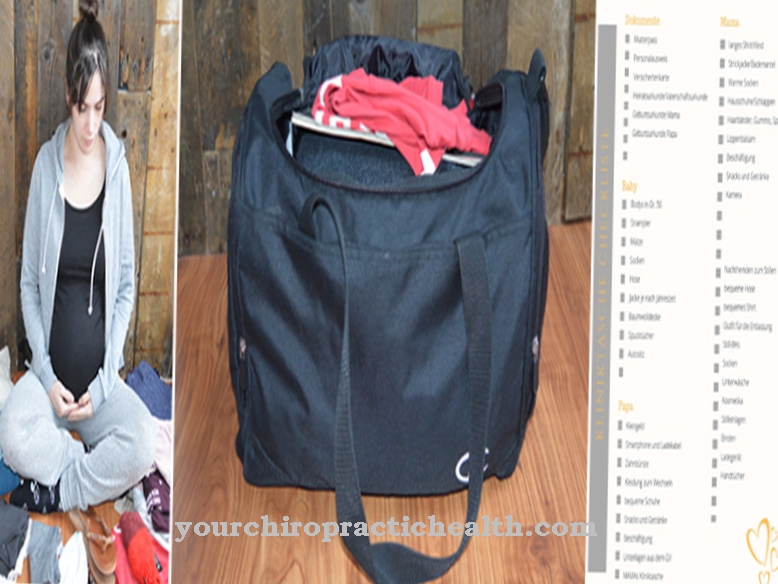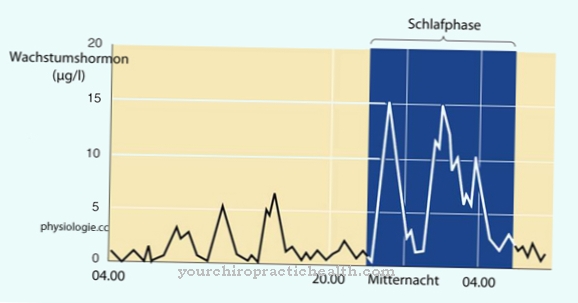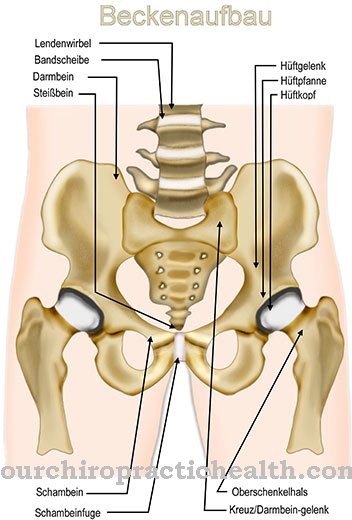Pregnancies are a burden for the female organism: the body and hormones change, which can lead to various complaints. The first few weeks are particularly difficult for many pregnant women. Many complain of persistent fatigue. It is Fatigue during pregnancy a perfectly normal accompanying symptom and nothing to worry about.
Causes of Fatigue During Pregnancy
The causes for Fatigue during pregnancy are diverse. Ultimately, pregnancy is a physical achievement. In the first third in particular, there is a hormonal change that is accompanied by the first changes in the female body. The hormonal change occurs through the development of the placenta. The placenta is tissue that provides the child with all nutrients and protects them during pregnancy.
The hormone progesterone, which initially increases sharply, plays a special role in the hormonal change. As a result of pregnancy, blood sugar and blood pressure drop and the metabolism works more slowly than before. It is not uncommon for pregnancy to be accompanied by hypothyroidism or iron deficiency. If there are symptoms, a blood test can provide information.
Ultimately, the growth of the placenta calls for additional blood cells, which are made by the bone marrow to support the child. Accordingly, the heart has to work harder to pump the extra blood around the body. Fatigue is also promoted by a poor diet, a lot of sugar and fatty foods, a lack of oxygen and little exercise.
Due to the growing body size, sleep can be restricted as the pregnancy progresses. While pregnant women usually feel fitter again in the second trimester, tiredness has increased again in the last few weeks. At this point in time, the physical strain also reaches its maximum.
Tips against tiredness
Fatigue during pregnancy is a normal symptom. However, it can be alleviated. To do this, pregnant women should keep an eye on their diet. Deficiency symptoms can be the cause, especially if the state of exhaustion increases after the third month. A blood count provides information about which substances the patient is missing.
The physical changes and the care of the unborn child increase the need for nutrients. If this is not sufficiently covered, for example iodine and iron deficiency become noticeable. Usually, such a deficiency can be remedied with the right diet. Above all, this includes the generous consumption of grains such as oats, wheat bran and millet, whole grain products and legumes.
In order to prevent other symptoms of deficiency, the menu should include plenty of fresh fruit and vegetables. In addition to a generally healthy diet, pregnant women should ensure that they drink enough fluids. Tap water and unsweetened herbal teas are particularly suitable. As soon as the stores are replenished and the deficiency disappears, those affected feel fitter.
When blood pressure and sugar fluctuate, various symptoms occur that contribute to a general feeling of malaise. These include, for example, dizziness and circulatory problems. For many women, the symptoms are especially noticeable in the morning after getting up. A healthy and active lifestyle alleviates fatigue.
Meals should be taken regularly and enough time should be allowed for walks or other sporting activities. Exercise and fresh air get the circulation going, which makes tiredness disappear. Overall, pregnant women do not have to forego sport. It depends on the sport and intensity - appropriate activities such as swimming, cycling, gymnastics and walking are even recommended.
The child's development affects the woman's body. Pregnant women should not expose themselves to stressful situations. This also includes fatigue. It is therefore important that the body's signs are not ignored. Pregnant women can take enough breaks throughout the day and should ensure they get enough sleep. A night's sleep of at least eight hours is recommended.
Chores in the household can increasingly be transferred to the significant other so that the pregnant woman has time for a break when she is tired. When the body demands rest and sleep, the needs can be given in. Taking too long a nap can also make the circulation sluggish.
Beware of pick-me-ups
Pregnancy means a physical change to which pregnant women have to adapt their living conditions. Even if everyday life is stressful and the job is demanding, women should rather avoid pick-me-ups like caffeine during pregnancy. The caffeine in coffee, cola or black tea enters the bloodstream of the unborn child via the placenta and can influence the development of the embryo.
Employers are obliged to allow pregnant women short breaks. For the well-being of the child, women should avoid medication and stimulants as much as possible during pregnancy and breastfeeding. The same applies to iron supplements from the pharmacy. In the event of a deficiency, medication may only be taken after consulting the attending physician.
Pre-sleeping is allowed!
Fatigue during pregnancy is a normal phenomenon. To relieve the exhaustion, natural remedies are recommended. Stimulant substances like caffeine, on the other hand, should be avoided. Fatigue is a normal reaction of the body to the changed circumstances and is usually not a cause for concern.
Pregnant women should accept the tiredness and listlessness and adapt by getting enough sleep, breaks, exercise in the fresh air and a healthy diet. After all, pregnancy is an exceptional state of the organism. A restructuring of everyday life contributes to a relaxed and comfortable pregnancy.




























